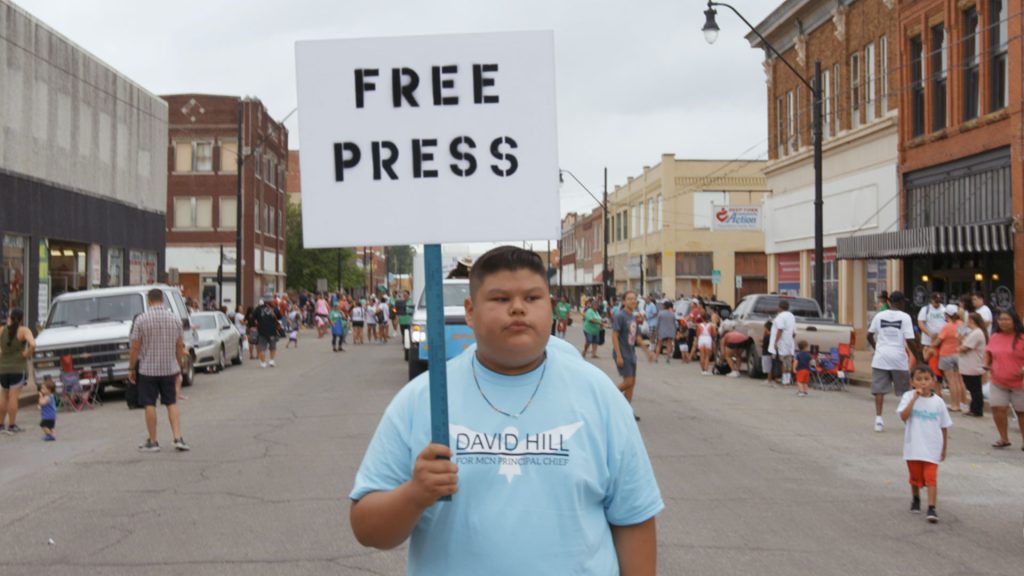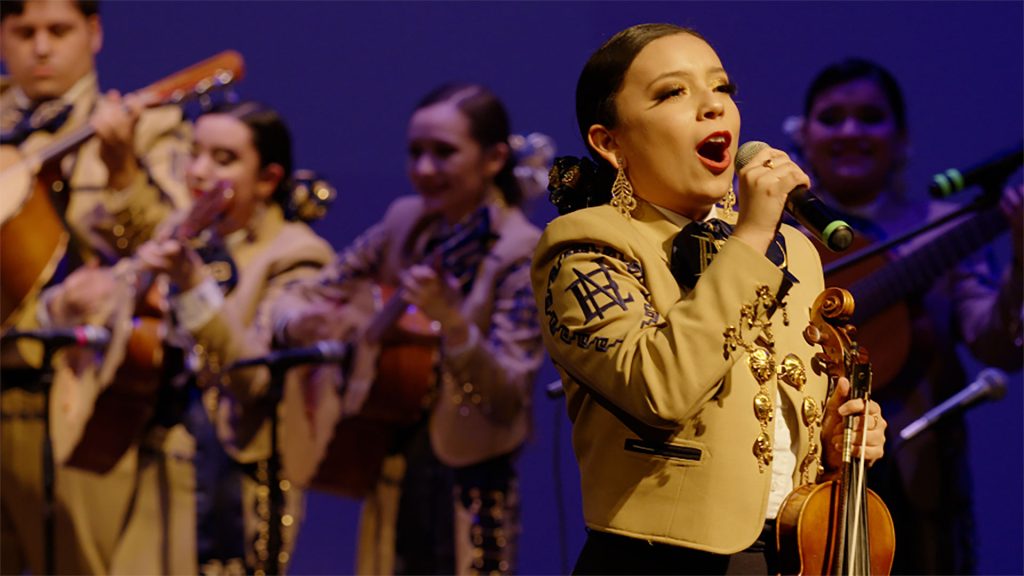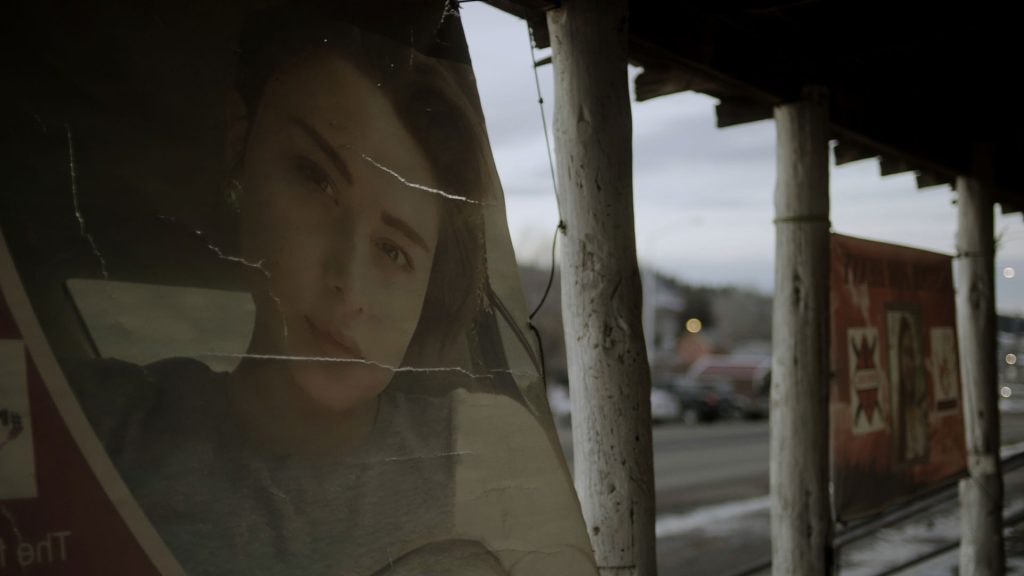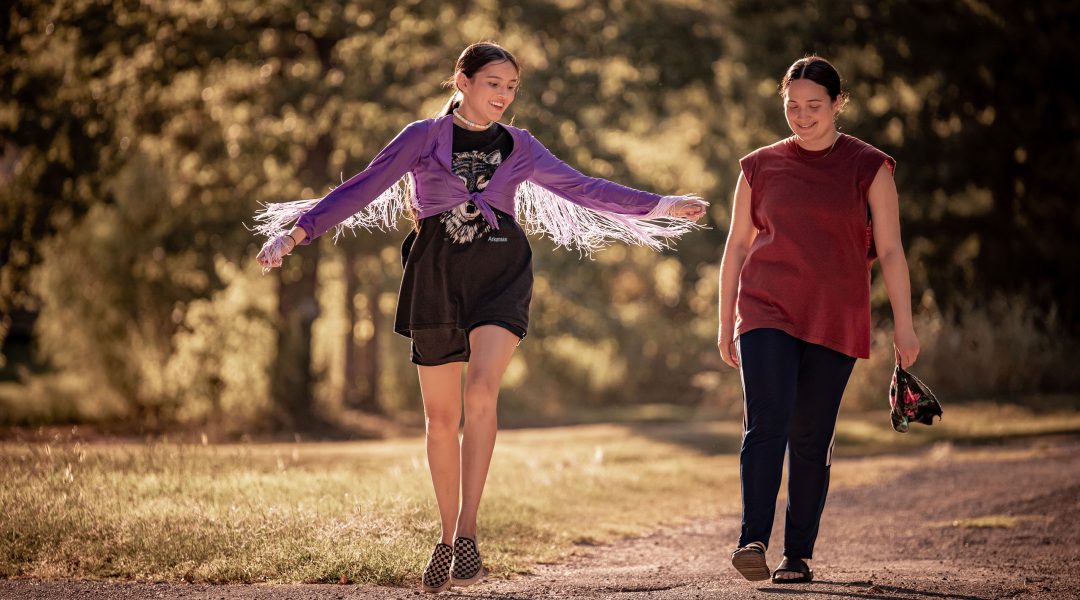Five productions of special interest to C&I readers will be unveiled this week at the Sundance Film Festival.
This week in the mountain ski resort town Park City, Utah, the 2023 edition of the Sundance Film Festival — the annual winter wonderland for independent cinema — will host world premieres of meticulously curated shorts, documentaries and features. If you can’t make it there, don’t despair: Some tickets remain available for online screenings.
And remember: The best of the bunch likely will be available in theatrical and/or digital release in the months ahead.
Here are five titles (the first a dramatic feature; the four others, documentaries) that have caught our interest, with details culled from the Sundance website.
Fancy Dance
Since her sister’s disappearance, Jax (Lily Gladstone) has cared for her niece Roki (Isabel Deroy-Olson) by scraping by on the Seneca-Cayuga Reservation in Oklahoma. Every spare minute goes into finding her missing sister while also helping Roki prepare for an upcoming powwow. At the risk of losing custody to Jax’s father, Frank (Shea Whigham), the pair hit the road and scour the backcountry to track down Roki’s mother in time for the powwow. What begins as a search gradually turns into a far deeper investigation into the complexities and contradictions of Indigenous women moving through a colonized world and at the mercy of a failed justice system.

Bad Press
Angel Ellis is just trying to do her job. She’s a reporter for Mvskoke Media in Okmulgee, Oklahoma, and she wants to give her readers access to all the information relevant to the Muscogee (Creek) Nation. But that’s not an easy task, given that Angel and her colleagues believe in truth and transparency and aren't afraid to challenge the integrity of some questionable tribal officials. Fast-forward to a confusing whirlwind of an emergency session at the National Council, where the 2015 Free Press Act is repealed, Mvskoke Media's independent editorial board is dissolved, and the newspaper is placed under the direction of the Secretary of the Nation and Commerce. Now the real fight begins.

Going Varsity in Mariachi
In a South Texas high school auditorium, trumpets ring out, thick guitarrón strings thrum, and violin bow hairs snap and swing wildly through the air. This is the world of competitive scholastic mariachi. This energetic documentary captures the highs and lows of Edinburg North High School’s Mariachi Oro as a green team strives for the state championship. With tough love, finely tuned empathy, and a fiery passion for the music, coach Abel Acuña guides the varsity band through a steep competition season and a fraught year in their adolescent lives. Team captains Abby, Marlena, and Bella prove the value of the skills taught in the band room as they navigate life’s challenges on and off the stage with grace, immutable work ethic, and total charm.

Murder in Big Horn
Within the past decade, dozens of young Indigenous women and girls from the Crow and Northern Cheyenne Nations have disappeared from Montana’s Big Horn County and its surrounding areas. Understandably, grieving Native families who fear the worst press local law enforcement for answers, but their pleas are most often met with silence or indifference. Arrests in these cases are rare, and convictions are virtually nonexistent. Elsewhere in America, similar stories shock communities and become nationwide news, but when they occur on Native reservations, a circle of bereft family members, friends, and activists are left to fight for justice on their own. Murder in Big Horn (a three-part documentary series) examines the circumstances surrounding many of these cases, told solely through the perspectives of those involved: Native families, Native journalists, and local law enforcement officers. Directors Razelle Benally (Oglala Lakota/Diné) and Matthew Galkin craft a powerful portrait of tribal members and their communities battling an epidemic of Missing and Murdered Indigenous Women (MMIW) that was set in motion almost 200 years ago.

Twice Colonized
Aaju Peter is a force of nature. She is a renowned Greenlandic Inuit lawyer and activist who defends the human rights of Indigenous peoples of the Arctic and a fierce protector of her ancestral lands. She works to bring her colonizers in both Canada and Denmark to justice and deploys her effusive spirit and illuminating wit to provoke self-examination and personal responsibility among Westerners for imposing their colonial ways. As Aaju launches an effort to establish an Indigenous forum at the European Union, she also embarks upon a complex and deeply personal journey to mend her own wounds, including the unexpected passing of her youngest son.
Photography: Sundance Institute













